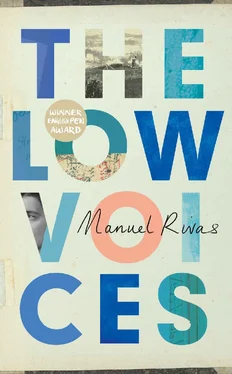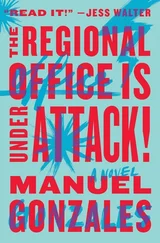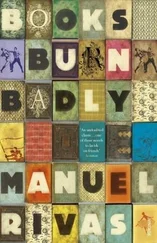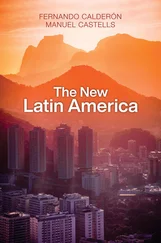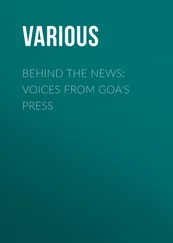‘It’s an interview with Luís Seoane!’
He chewed over some words. Then said in a loud voice:
‘I don’t suppose it’s for today?’
‘Yes, yes. Here it is!’ I proclaimed triumphantly.
I wrote out the headline by hand. He took the text. And, as he left, said:
‘It may not go in. We’re waiting on a funeral notice.’
I waited. I’d learned to smoke by then. I already had the property of a cloud. Every time a door squeaked, I expected it to be the relations with a sackload of money urgently collected in the early hours of the morning. Every last peseta had to be counted. But they didn’t come. And eventually the manager of the printing press gave the go-ahead. I was already downstairs. He looked at me. ‘That interview’s in.’ He didn’t look unhappy. I think he liked the fact that someone from editorial had gone downstairs to get his hands dirty.
The summer was the best time for an apprentice. There was a veteran journalist, Ezequiel Pérez Montes, who beat all the records. He was capable of interviewing eight of Franco’s ministers in a single day, which left the special envoys feeling amazed. He kept his distance. He was a celebrity in the city! But for me it was a real spectacle watching him in action. I remember the day he interviewed a local painter, who was always fishing around for compliments. And Ezequiel asked him:
‘Where would you like to be hung, master?’
All that was missing was the noose. The man replied straight from his heart:
‘In the Louvre, of course.’
Most editors went on holiday in the summer. So the apprentice ended up doing a bit of everything. Port information. The sensation you were really constructing a poem, with the names of ships docking or leaving. Accident and crime reports. That detective formula I always thought would make a great start to a novel: ‘Proceedings have been instituted in the case.’ To institute proceedings — what else is literature, if not this?
Some days, I wrote the horoscope, but that was far from easy. Whenever I saw somebody else doing it, whenever I read it, I thought it was a joke. So off I went. But I knew people who were Libra or Pisces or … In fact, I knew people who were every sign, including my own. What if I harmed somebody or infused a wretch with false hope? There is a Galician proverb: ‘Nobody ever saw the day after today.’ I realised you are compromised by the things you write. A horoscope is committed literature as well.
During that apprenticeship, there was upheaval in the political institutions. Democratic or anti-Fascist organisations were hunted down. Sometimes, at night, you would hear a whisper at the door. The journalists from Political Information went out. They encountered people in a hurry, with a clandestine communiqué and the wake of being prison fodder. One of those who came to the staircase was Moncho Reboiras, who was later shot down by Franco’s police in Ferrol. There was a writer named Margarita Ledo working on the Ideal at the time. She suddenly disappeared. Portugal had just gone through the Carnation Revolution of 25 April 1974. One day, I was asked, ‘Could you take a bag of personal effects for someone who has to flee?’ I was given the address and went. Margarita was the one leaving. She was going to steal across the border on her way to exile in Portugal. We embraced. A little later, the government police arrested Gaciño. His chronicle of political life on a Sunday was the most widely read in Galicia by people on both sides of the fence. The Catholic paper’s analyst was accused by the governor of being no more and no less than the brains of the democratic opposition in Galicia. What Gaciño was was a good journalist. He carried everything around in his head, that much was true. The regime, despite its panoptic eye, was taking more and more stabs in the dark. The demise of the dictatorship was in sight, but it was that dangerous moment when fear engenders fear. In the evening, a group of journalists went to demonstrate in front of the civil governor’s residence and delivered a statement in which we denounced the witch-hunt and asked for the prisoner to be released. There must have been a dozen democratic journalists protesting in front of the gate, but we felt like more, especially when Luís Pita opened his mouth and out came the voice of Max Estrella in Bohemian Lights : ‘Bastards. And they are the ones who protest against the Black Legend of Spain!’ There are times when a few people seem like more. As in a shipwreck.
I don’t feel nostalgia for that time. ‘Nostalgia is what dogs have if you take away their bone,’ said the freethinker António Sérgio in order to have a go at the chief apostle of saudosismo , the poet Teixeira de Pascoaes. What I do feel is a certain nostalgia for being an apprentice. Because the apprentice could come and go without being seen. He was an invisible journalist. Who’s that boy? He’s an apprentice from the Ideal . I suppose they had no one else to send. So the apprentice goes back to being invisible. But he hears, he listens. He is informed by the low voices. Someone is talking about a scandal. In the corridors of the town hall, the Minister for Culture and Sport is annoyed with a theatre group. He lets it be known to an agent:
‘How on earth could you decide to put on that play, the Horrorsteia .’
‘It’s not the Horrorsteia , it’s the Oresteia .’
‘Well, that just makes it worse!’
The theatre man cannot bear any more attacks from this cultural leader:
‘The monster the rest of us carry inside, you have on the outside.’
The minister gazes down at the man from his position of authority. He needs an idea and waits for it to travel to his head. He is offended. It seems as if he is going to exact the most terrible vengeance. In the end, he says:
‘Let’s not start dropping hints, shall we?’
I internalised being an apprentice a great deal. As I did the fact of having gone into journalism as a result of a few poems. I managed to go to Madrid to study at the new faculty of Media Studies. I was awarded a grant and sent almost daily chronicles for a section called ‘North Station’. This is where we arrived on the Atlantic Express, eleven or twelve hours by train from A Coruña to Madrid. That bit about the poems is a stigma that forms part of my body. The first exercise we were given in the faculty had to do with journalistic language and precision. A subject that was close to my heart, as a gobbler of words. When the teacher, Federico Ysart, handed back our assignments, he threw mine on the table and said out loud, in a critical tone:
‘This isn’t journalism, it’s literature!’
He was a very good professional, one of the best in that faculty, which had some really terrible teachers. He worked for an influential magazine, the weekly Cambio 16 . But I recall with a certain pride that his verdict didn’t hurt me. I felt content that my journalism should strike him as literature.
I was always an apprentice. I never stopped being one. I found this out on the day I interviewed a normal person.
I was doing work experience at the broadcasting centre of Spanish television in Galicia. The director was Alexandre Cribeiro, a poet as well as a producer. He’d worked for a long time in Madrid, where he’d been active in the UNESCO Club. It was summer. Santiago de Compostela. The permanent staff had gone on holiday. Cribeiro gathered us interns together and asked us something really rather unusual:
‘What television would you like to make?’
We had ideas, but they slipped through our fingers. They weren’t used to taking possession.
‘The BBC!’ said a whisper.
‘Well, go ahead then!’ said Cribeiro ironically. ‘No, really. What topic should we cover first?’
Читать дальше
